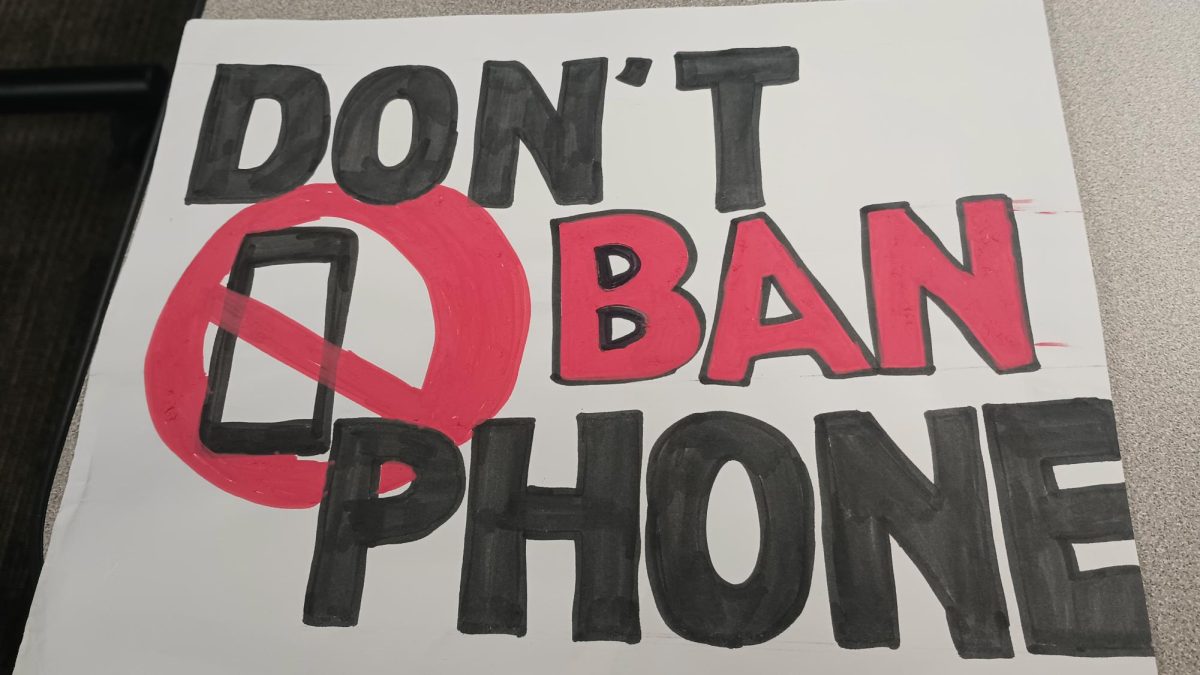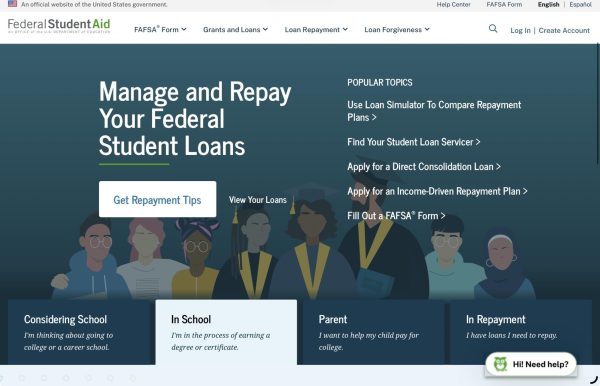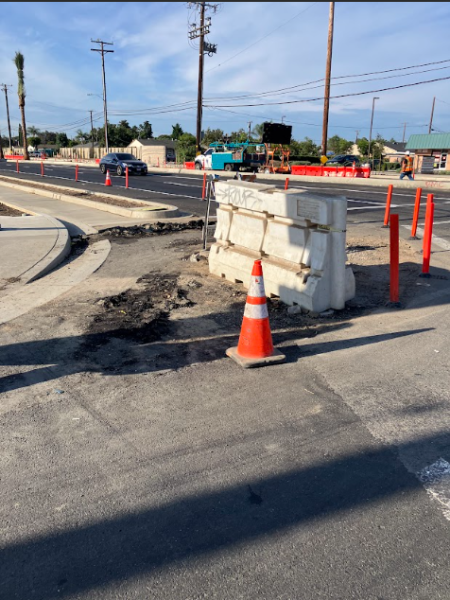Fast food and the fast growing wages
Obdulio Victorio (created with Canva)
Senior Aymee Marin-Sepulveda works at McDonald’s, and believes that wages should be fair.
The state of California is going to implement an increase in wages for fast food workers in the new year after Governor Gavin Newsom signed a new bill citing that the fast food industry has been overlooked and change must come to workers who face abuse and difficulty in their jobs.
The Fast Food Accountability and Standards Recovery Act, or Assembly Bill 257, was recently signed into law by California governor, Gavin Newsom, on Labor Day, Sept. 5, 2022. The bill would implement a significant increase in the minimum wage for fast-food workers. This increases the recently implemented $15 an hour to $22 an hour, which is an almost 47% increase.
While the raising of the minimum wage is a major win for fast food workers’ incomes, there may be large effects on food prices, working hours, and employer costs.
Newsom released a video on social media breaking the news to Californians. In the video, he said the fast food industry was going to become the main focus since standards on wages and working conditions had fallen “a bit short.”
The assembly bill was authored by former Subway franchisee, Chris Holden. With firsthand experience in the fast-food industry, Holden said that when it comes to increasing wages and protecting fast-food workers, “time is of the essence.” Holden also said that the bill would not only “lift small business owners and essential workers,” but that it would finally resolve “longstanding issues in the fast food restaurant sector.”
An excerpt from the bill says the fast food industry has been “rife with abuse, low pay, few benefits, and minimal job security.”
A main function of the bill would be the creation of a Fast Food Council. The council would consist of 10 members including fast-food employees, worker advocates, franchisees, and government representatives. The main focus of the council would be to establish “sector-wide minimum standards on wages, working hours, and other working conditions…” Through the council, the goal is to improve all the issues that fast food workers endure throughout their shifts.
Senior Reynol De La Torre has had experience in the fast food industry as he formerly worked for Pizza Hut as a customer service rep.
The current minimum wage for all California workers is $15 an hour. When asked if the current wage is livable De La Torre said, “I do not believe the current minimum wage is enough for a person to live on. Depending on your hours the average paycheck comes out to about 500-600 bucks every two weeks.”
When asked if there would be any possible repercussions or negative effects from the wage increase De La Torre said “I think one downside that comes with the raising of the minimum wage is that the cost of living raises as well; essentially the dollar loses more value as the wage raises because of inflation.”
The main issue that comes with the raising of the wage is that it only applies to fast food workers.
“As far as I know, the starting pay for retail workers is higher than fast food workers, so the raise only being offered to fast food workers might seem justifiable, but if a retail worker is only making minimum wage then their pay should also be increased,” De La Torre said.
With his firsthand experience, De La Torre shed light on working conditions.
“More should be done about the conditions that fast food workers experience. The exploitation of workers is common but will unlikely ever be seen,” he said.
Another student who has had her hand in the fast food industry is senior Aymee Marin-Sepulveda, who formerly worked at McDonald’s as a cashier and oftentimes had run-ins with rude and difficult customers.
As stated before, the $15 minimum wage is in place for all workers. Marin-Sepulveda does not think the current wage is sufficient.
“No, [it’s not a living wage]. I’m lucky to be in a situation where I’m not solely dependent on myself but I do have coworkers that are working multiple jobs to sustain themselves” said Marin-Sepulveda.
The International Franchise Association (IFA) opposes the bill due to worries about price increases and the immense modification of employees’ working hours.
“Prices will go up, and companies can start to cut employee hours so they won’t actually have to pay them more,” said Marin-Sepulveda.
The bill is only going to raise the wages for workers in the fast food industry and not others such as retail. Marin-Sepulveda expresses her disagreement with this choice.
“I think it’s unfair because workers in the retail industry are also minimum wage workers regardless of how ‘hard’ they work. If the minimum wage increases, it should increase for everyone,” said Marin-Sepulveda.
While many have seen how busy a fast food restaurant can get during a rush, only a small percentage of people have actually experienced the stressful environment.
“During rush hour, it can become extremely stressful and loud, and I’ve broken down multiple times while on the job. I don’t think the wage matches the workload. It can be really mentally draining and exhausting,” said Marin-Sepulveda.
The bill has most definitely garnered both opposition and support due to factors that will both positively and negatively affect communities. While fast food workers will finally receive just compensation for their working conditions, many will have to face the increase in prices that come with the increase in wages.

My favorite anime is one piece, I like collecting enamel pins based off manga and anime, and I like Funko Pop figures.





































